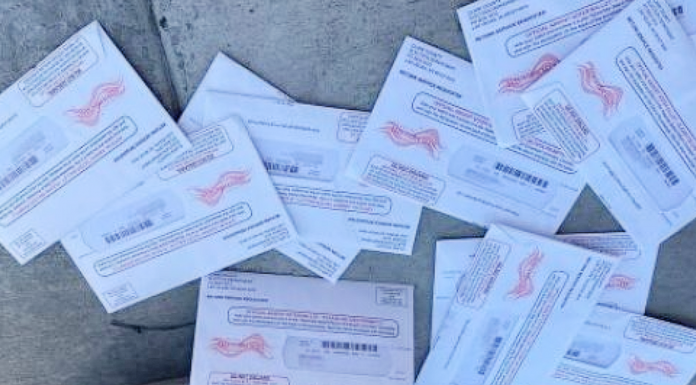On Wednesday, the Trump campaign filed suit against Nevada Democrats for a secretive attempt to pass a measure that would send ballots automatically to every registered voter on the state’s voting rolls.
In an illegal late night coup, Nevada’s clubhouse Governor made it impossible for Republicans to win the state. Post Office could never handle the Traffic of Mail-In Votes without preparation. Using Covid to steal the state. See you in Court! https://t.co/cNSPINgCY7
— Donald J. Trump (@realDonaldTrump) August 3, 2020
It followed other blue states, most notoriously California, amid false media claims that they were merely sending out applications.
But increasingly, the mail-in ballot push that began on the very day in March when President Donald Trump declared a national health emergency in the coronavirus pandemic has come under scrutiny with Democrats’ bad-faith intentions coming into focus.
Nowhere is that clearer than in Nevada, where data from the recent primaries, in which the state attempted the same practice, show the disastrous consequences that ensued, according to the Public Interest Legal Foundation.
The election-integrity watchdog on Wednesday issued a research brief showing that in Clark County—the state’s southernmost county, which encompasses Las Vegas and Henderson—more than 223,000 ballots went to the wrong address.
That comprised, in total, roughly 17 percent of the 1,325,934 ballots that were mailed out.
“These numbers show how vote by mail fails,” said J. Christian Adams, PILF president and general counsel.
“New proponents of mail balloting don’t often understand how it actually works,” he continued. “States like Oregon and Washington spent many years building their mail voting systems and are notably aggressive with voter list maintenance efforts.”
He noted that the two Pacific Northwest states—both currently dealing with their own sets of issues surrounding radical anarchist protests—did not offer evidence that other blue states could likewise address the problems by deciding to introduce the new system in November’s tightly contested presidential election.
“Pride in their own systems does not somehow transfer across state lines,” Adams said. “Nevada, New York, and others are not and will not be ready for November.”
After discounting other ballots that were deemed undeliverable or inactive, only 23 percent of those mailed out in Nevada’s Clark County primary were returned and accepted.
Meanwhile, anecdotal evidence indicated that some of the ballots were carelessly discarded in Dumpsters and other places where they might easily have been compromised.
Hillary Clinton prevailed over Trump by just over 27,000 votes, or 2.42 percent, in the 2016 election, with only two of the state’s 17 counties (Clark and Washoe) supporting her.
However, the vast majority of voters in the state hailed from those two counties.
In Washoe County—the state’s westernmost, which encompasses Reno and Sun Valley—only a third of the ballots were returned and accepted.
Just under 10 percent of them were deemed undeliverable, meanwhile, by the US Postal Service.
The state’s AB4 bill also would close down nearly three quarters of its polling locations in comparison to the 2016 election, thereby discouraging voters from participating in person and putting a disproportionate burden on USPS.
It would also, controversially, legalize ballot harvesting by allowing partisan activists to return ballots on behalf of others where the law previously permitted only family members to do so.
PILF noted that on top of the integrity issues, Clark County’s all-mail ballot effort during the primaries was needlessly wasteful, with the county projecting a cost of $184,738 to send the ballots to inactive registrants with the expectation that 90 percent would bounce back.

